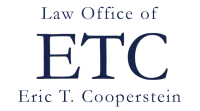 A family member or close friend calls you one day with a “quick” question. Seems she has a dispute with a neighbor or she just got denied a promotion or she needs to tell the renter of her duplex to stop smoking in his unit. She knows you are really busy but was wondering if you would mind looking into it or just writing a letter or making a phone call for her. She hates to bother you but she does not know any other attorneys and really needs some help with this problem.
A family member or close friend calls you one day with a “quick” question. Seems she has a dispute with a neighbor or she just got denied a promotion or she needs to tell the renter of her duplex to stop smoking in his unit. She knows you are really busy but was wondering if you would mind looking into it or just writing a letter or making a phone call for her. She hates to bother you but she does not know any other attorneys and really needs some help with this problem.
So, do you agree to help? The answer differs for each attorney. Some swear against representing friends and family on the theory that no good deed goes unpunished. If the case turns sour, you lose the friendship or become a persona non grata at family get-togethers. Plead ignorance as to that area of the law, refer the matter out, and keep your nose clean.
Some lawyers, on the other hand, feel it is their obligation to help out a family member or friend. Remember when Joe helped you re-roof the garage? How about when Stacey brought your family meals for a week when your spouse was hospitalized? And you are unwilling to write a simple letter? Loser.
Basics. Let us say you decide to help this person. Keep in mind that regardless of whether she is going to pay you, she is your client. In fact, she probably became your client during the first phone call or the conversation in the family room during Thanksgiving dinner. She asked for legal advice and provided you with confidential information, you listened, nodded your head, made some noncommittal remarks, and did not give her any sign she should stop talking. She’s a client. Make sure you treat her like one.
Representation agreements. In most jurisdictions, ethics rules require representation agreements only for contingent fee matters or advance payment of availability or flat fees that will not be placed in a trust account. Nevertheless, a representation agreement is a good idea for all client engagements, including those you may do for free. Legal Aid and other pro bono lawyers always have their clients sign representation agreements. Even where no money is being paid, the client should understand the scope of the representation, what obligations the client has to cooperate with the lawyer, and how the client or lawyer may end the representation. This is no less applicable to friends and family (F/F) than it is to other clients. Signing a representation agreement also shows that you are taking the matter seriously and you expect the same from your clients.
Fees. If you do not charge the F/F a fee, you risk that if the matter becomes more complicated than you anticipated, you may become resentful that you are working for free, do a poor job, or let the case “mature” under a pile of files that do generate fees. Charging a fee, however, may give the impression that you are greedy and deserve to be the butt of lawyer jokes. See paragraph three, above.
One compromise is to agree with the F/F that you will provide them with several hours of legal services for free. After that first two or four or whatever hours, you will expect them to pay your bills. If your rate is $250 an hour, that is like giving them $500 or $1,000 right off the bat. Difficult for them to later say you did not treat them fairly when you gave them that much in free services.
You could be more elaborate and say that after the first four hours free, you will bill at one-half your rate for the next X hours, and then the full rate after that. However it is done, the idea is to convey to the F/F that your time is valuable, that they have to participate as well, and that you do not intend to make their very irritating case your life’s work unless they are willing to pay for it. Even if you would have felt guilty about charging your best friend for legal work, you are likely to feel less guilty after you have put in a number of hours free. The invoices also provide a permanent record of what work you did for them, which may help avoid recriminations later.
Getting out. Having an exit strategy is a particularly good idea when representing friends and family. Your personal relationship may lead you to get in deeper than you anticipated, with no good way to extract yourself once you are up to your hips in your client’s stuff. The time to think about getting out is at the beginning, when you are drafting the representation agreement. Think carefully about what the scope of your services will be and how to define when you will be done.
Confidentiality. Remember, no matter what happens, all of the information you receive during the representation of friends or family is confidential. No matter how badly it blows up, or how you are maligned in your circle of friends, or who whispers about you in grandma’s pantry, keep your mouth shut. No name-clearing, no setting the record straight.
Hopefully, if you take some of the steps outlined above, you will maintain long and happy relationships with your family and friends. At least that’s the plan.
(photo: toastforbrekkie)

A Family and Friends Plan for Your Law Firm is a post from the law firm marketing blog, Lawyerist.com
Related posts:
 Each year in early July the Minnesota Office of Lawyers Professional Responsibility (OLPR) and the Minnesota Lawyers Professional Responsibility Board (LPRB) publish an annual report summarizing the Year in Discipline, as it were. Not the type of reading typically picked up by anyone other than ethics wonks and insomniacs, but here are some of the highlights:
Each year in early July the Minnesota Office of Lawyers Professional Responsibility (OLPR) and the Minnesota Lawyers Professional Responsibility Board (LPRB) publish an annual report summarizing the Year in Discipline, as it were. Not the type of reading typically picked up by anyone other than ethics wonks and insomniacs, but here are some of the highlights:
 Many of the posts on Lawyerist focus on
Many of the posts on Lawyerist focus on  At some point in our educational careers, we have all returned to school in September and been directed to write an essay titled “What I Did Last Summer.” And we have all had the same first thought: Nothing. I did nothing all summer.
At some point in our educational careers, we have all returned to school in September and been directed to write an essay titled “What I Did Last Summer.” And we have all had the same first thought: Nothing. I did nothing all summer. At some point in our educational careers, we have all returned to school in September and been directed to write an essay titled “What I Did Last Summer.â€� And we have all had the same first thought: Nothing. I did nothing all summer.
At some point in our educational careers, we have all returned to school in September and been directed to write an essay titled “What I Did Last Summer.� And we have all had the same first thought: Nothing. I did nothing all summer.
 Running a successful law practice is all about getting clients. One way is by building a referral network, a frequent topic on Lawyerist. Another way is by advertising, such as in the yellow pages.
Running a successful law practice is all about getting clients. One way is by building a referral network, a frequent topic on Lawyerist. Another way is by advertising, such as in the yellow pages. Running a successful law practice is all about getting clients. One way is by building a referral network, a frequent topic on Lawyerist. Another way is by advertising, such as in the yellow pages.
Running a successful law practice is all about getting clients. One way is by building a referral network, a frequent topic on Lawyerist. Another way is by advertising, such as in the yellow pages. Running a successful law practice is all about getting clients. One way is by building a referral network, a frequent topic on Lawyerist. Another way is by advertising, such as in the yellow pages.
Running a successful law practice is all about getting clients. One way is by building a referral network, a frequent topic on Lawyerist. Another way is by advertising, such as in the yellow pages. A family member or close friend calls you one day with a “quick” question. Seems she has a dispute with a neighbor or she just got denied a promotion or she needs to tell the renter of her duplex to stop smoking in his unit. She knows you are really busy but was wondering if you would mind looking into it or just writing a letter or making a phone call for her. She hates to bother you but she does not know any other attorneys and really needs some help with this problem.
A family member or close friend calls you one day with a “quick” question. Seems she has a dispute with a neighbor or she just got denied a promotion or she needs to tell the renter of her duplex to stop smoking in his unit. She knows you are really busy but was wondering if you would mind looking into it or just writing a letter or making a phone call for her. She hates to bother you but she does not know any other attorneys and really needs some help with this problem. A family member or close friend calls you one day with a “quick” question. Seems she has a dispute with a neighbor or she just got denied a promotion or she needs to tell the renter of her duplex to stop smoking in his unit. She knows you are really busy but was wondering if you would mind looking into it or just writing a letter or making a phone call for her. She hates to bother you but she does not know any other attorneys and really needs some help with this problem.
A family member or close friend calls you one day with a “quick” question. Seems she has a dispute with a neighbor or she just got denied a promotion or she needs to tell the renter of her duplex to stop smoking in his unit. She knows you are really busy but was wondering if you would mind looking into it or just writing a letter or making a phone call for her. She hates to bother you but she does not know any other attorneys and really needs some help with this problem.